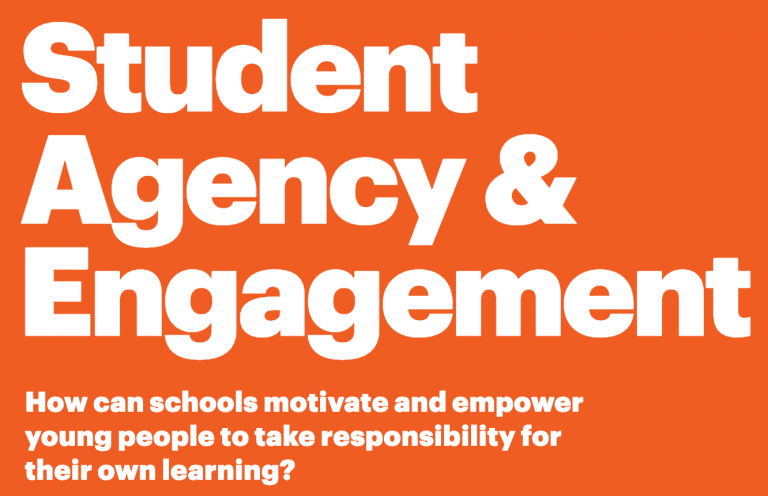High school, for some, can seem a lot like “Lord of the Flies.” But in Stuart Easton’s 10th grade English class, that’s no metaphor.
Easton, a teacher at XQ School Vista High near San Diego, covers the dystopian literary classic in a way William Golding would appreciate. He leads discussions about the book’s major themes — the collapse of society, the struggle for humanity in the face of chaos, the capacity for evil in all people.
And then he leaves the room.
“The best way to get into ‘Lord of the Flies’ is to experience it,” Easton said. “So, I retreat for a few days.”
In an example of student-driven, inquiry-based learning, Easton directs the students to create their own society, as if they were on a deserted island like the characters in the novel. And then he leaves the classroom for a few days. He’s not far, just far enough for students to feel the independence — and responsibility — that comes from a world without authority or structure.
When he conducted the lesson this spring, his students decided to form committees, elect leaders, and build a mini-society. The process was a little chaotic at first, but no one lit fires or attacked their classmates. In fact, unlike the book, the experiment ended happily.
For some students, the happiest ending of all was a deep understanding and appreciation of Golding’s masterpiece.
“We got to make our own story, based on what we learned, and apply it to real life,” said Deelilah Aivao, a 10th grader in Easton’s class. “We had power over the outcome of the project. … It gave us the opportunity to do something on our own rather than being forced to do it.”
And what did students learn? A lesson that some people take a lifetime to grasp:
“We learned that being stubborn can affect not only yourself, but others too,” she said. “I absolutely loved this book.”
When students participate in their learning, they are more likely to retain the information, connect it to other subjects, understand its deeper context, according to XQ’s Knowledge Module, “Student Agency & Engagement.”
Even if students make mistakes, the experience can be invaluable.


“High school is a collaboration between young people and adults — and everyone should have a seat at the table,” according to the Module. “They have a stake in issues at every level of decision making, from hallway decorations to social activities, from school-wide projects to disciplinary policies. Students often have great ideas to contribute, and they deserve a chance to do so.”
For Easton, it was an easy choice. After eight years of teaching high school English, he had a good idea what students find engaging, and how to link broad literary themes to students’ everyday lives.
The project also fit with his educational philosophy: making learning meaningful.
“Everyone I’ve met likes to learn, but no one likes school. There’s a disconnect,” he said. “But I found that the best way to get into something is to experience it.”
The literature-come-to-life experiences don’t end with “Lord of the Flies.” Easton rounds out the semester with a pair of murder trials, inspired by “A Separate Peace” and “Macbeth.” For “Macbeth,” students put Macbeth on trial for murder, and debate the nuances of murder within the context of war. Students play the roles of Macbeth, Lady Macbeth, prosecutors and defense attorneys, witnesses, and the jury. Easton gets to be the judge.
His classroom comes alive during the projects, he said. Discipline problems decrease, and almost every student gets involved. His 11th grade class heard about the projects and asked if they could try some, too.
“It gets them out of their comfort zone, so they can really explore who they are,” he said. “As a teacher, it was the biggest growth I’ve ever seen for students — the realization that one day they’ll be in charge of creating their own lives, their own careers, and they don’t have to sit back and let people dictate it to them.”
The projects took some planning, and Easton had to change the way he’d been approaching literature lessons: Less lecturing, more listening. In many ways, he had to start fresh, and give students the same opportunity.
“My advice (to teachers) is to trust your students. They’ll surprise you in ways you can’t anticipate,” he said.
“And try your hardest to let go.”